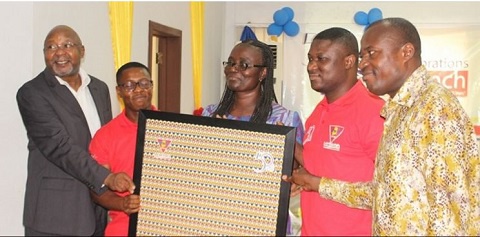Professor Stephen Kwankye, a Lecturer at the Regional Institute of Professional Studies, Legon, said Ghana needed to educate the youth on their sexual reproductive health rights (SRHR) to enable them to contribute meaningfully to national development.
He said educating the youth on the SRHR was important because such issues were complex and could not be addressed by a single organisation or the youth themselves.
Prof Kwankye said this at the opening of the 49th Planned Parenthood Association of Ghana (PPAG) annual general meeting in Accra.
It was on the theme: “PPAG Vision 2020 towards Agenda 2030 - The Role of Civil Society Organisations.”
The meeting aims at ensuring effective implementation of PPAG’s strategic plan for 2016 - 2020 and to discuss its contribution towards the attainment of the Sustainable Development Goals (SDGs).
The four-year plan includes better SRHR policies for women and young people, quality health service delivery and the growth of the volunteer-base of the association.
Prof Kwankye said statistics from the Ghana Statistical Service indicated that 32 per cent of the population was classified as persons between ages 10-24 years with the proportion of adolescent population being twice higher.
“This makes the target population very large and the work at PPAG plays a significant role in ensuring that the young ones made informed decisions,” he said.
Prof Kwankye said though Ghana had made strides in fertility reduction efforts within the last two decades with a decline from 6.4 per cent in 1988 to 4.2 per cent in 2014, demographic dividends must persist long enough to allow the nation harness the benefits for national socio-economic development.
“Nonetheless, adolescents continue to make substantial contributions to fertility in Ghana which reduced from 9.7 per cent in 1988 to 8.2 per cent in 2008 but increased again to 9.1 per cent in 2014,” he said.
He said due to the current sexual reproductive health situation and the socio-cultural environment within which the PPAG operated, it was clear that it needed to operationalise its plans to be able to realise the goals and objectives.
Dr Joseph Amuzu, the Executive Director PPAG, said the organisation was working together with the Government and other partners for the realisation of the Vision 2020 as a result of which government had placed family planning under the National Health Insurance Scheme.
He said despite the successes chalked by the organisation, it was still confronted with financial challenges adding; “the signals are clear that the International Planned Parenthood Federation (IPPF) grant is dwindling just as donor funds.
“There is, therefore, the need to actively mobilise local funding to sustain the organisation,” he said.
Dr Amuzu said the IPPF, Africa Region, would launch a new initiative called the “African Citizenship Initiative for SRHR” at this year’s regional council meeting in Nairobi in July.
This would recruit 250,000 African individuals and organisations to make financial contributions over a five-year period to support SRH programmes.
Dr Victor Bampoe, the Deputy Minister of Health, commended PPAG for its work to improve the sexual lives of young people and pledged the ministry’s support to enhance its activities.
Health News of Monday, 30 May 2016
Source: GNA
Gov't urged to support reproductive health education
 File photo
File photo












